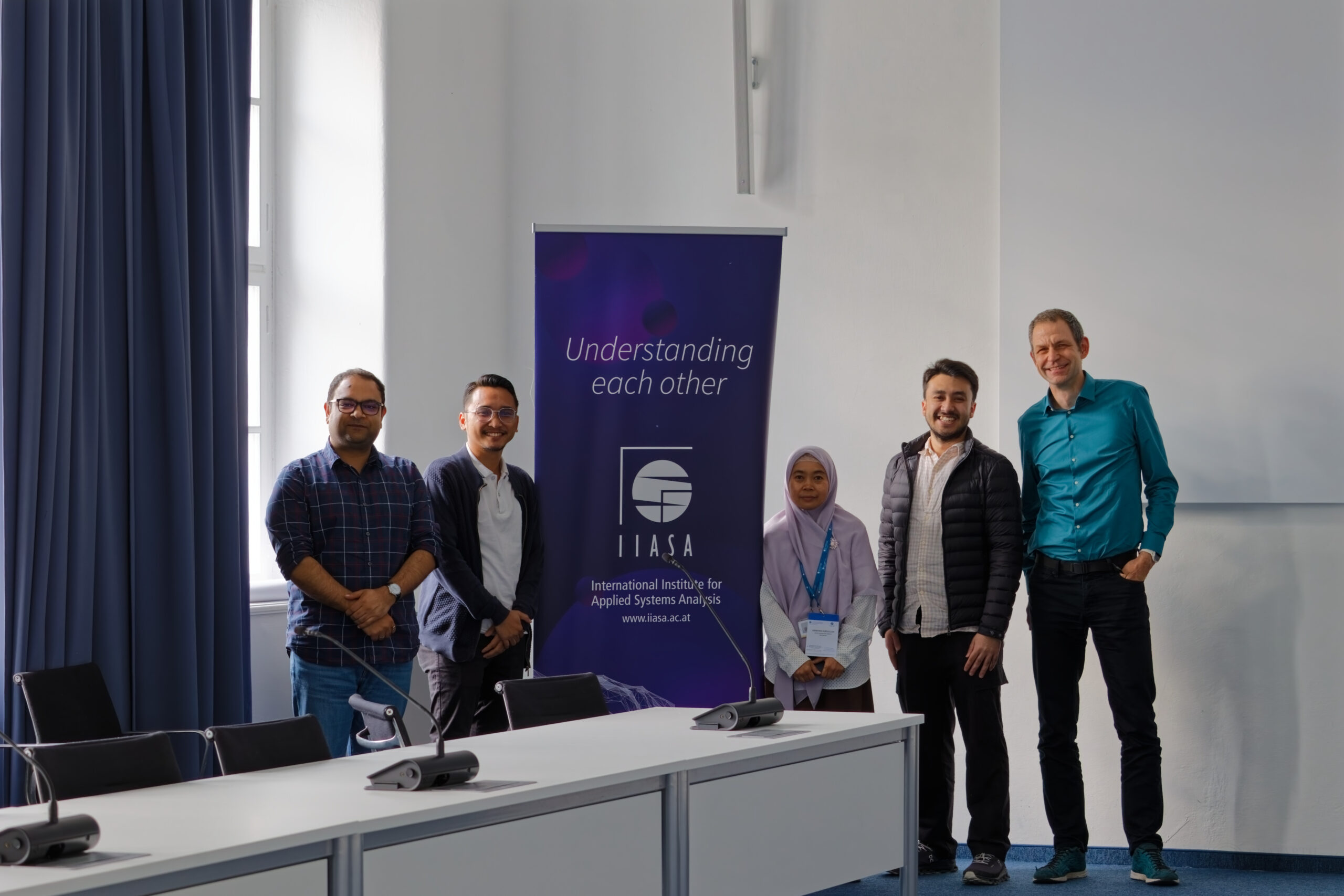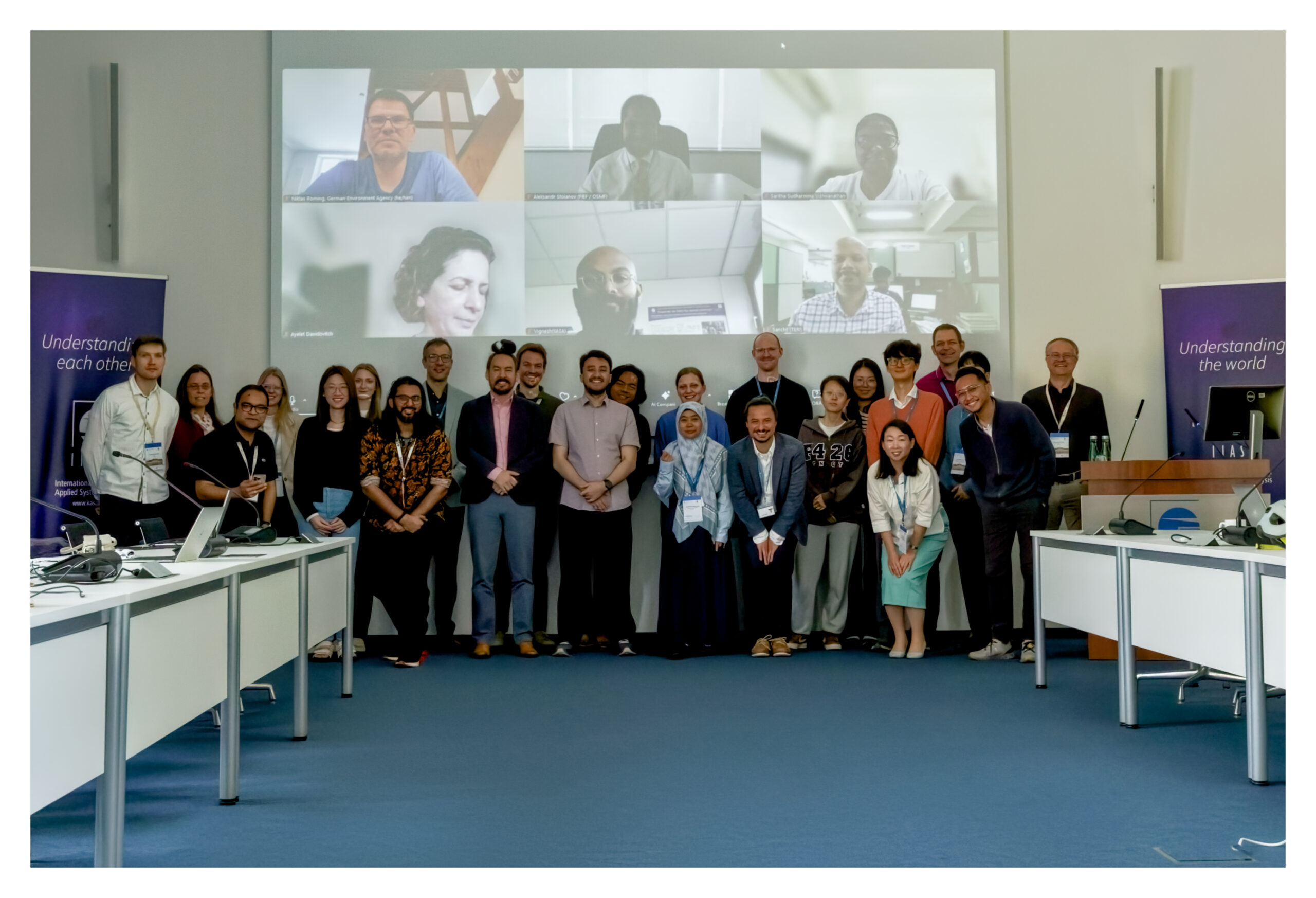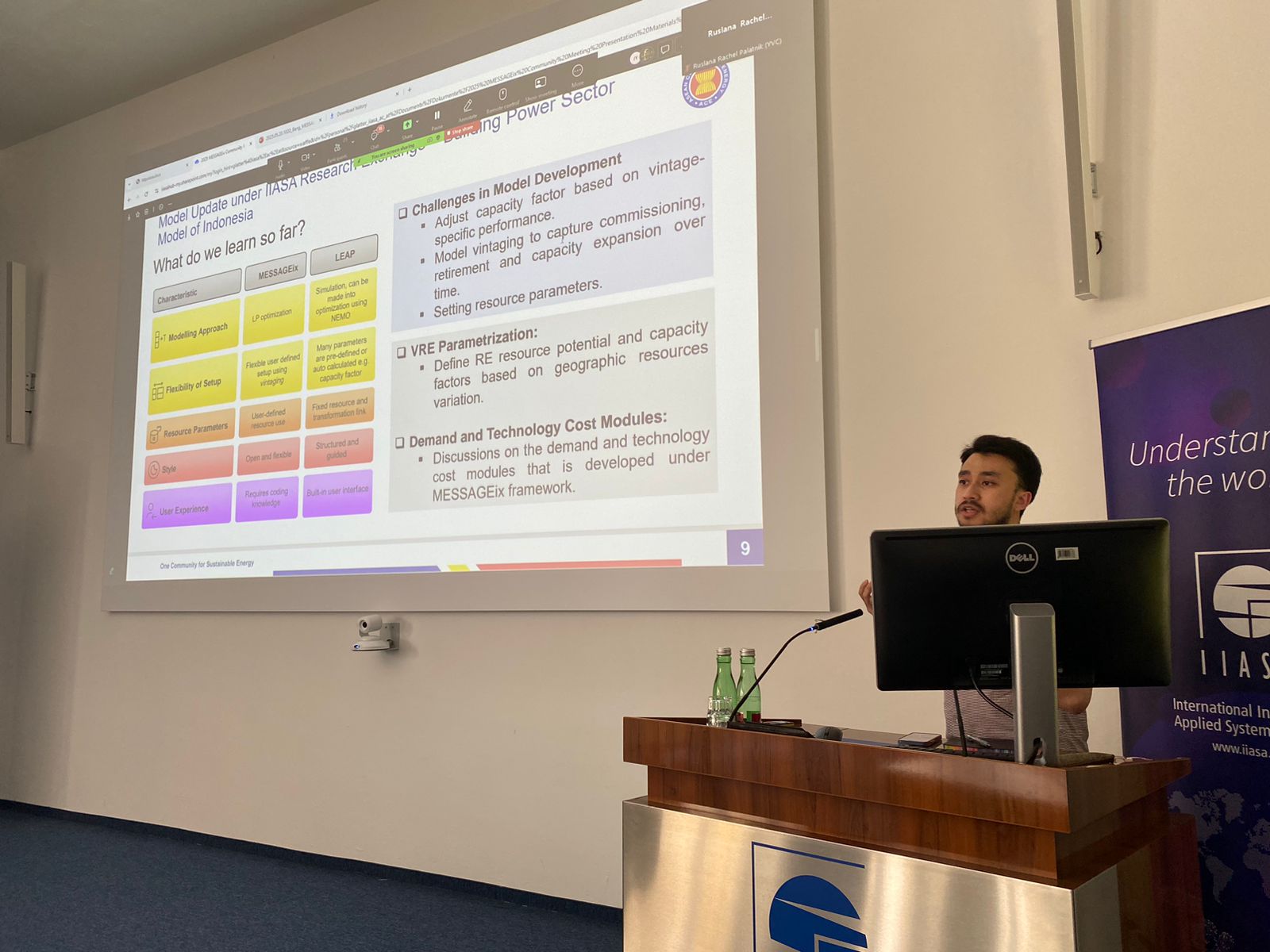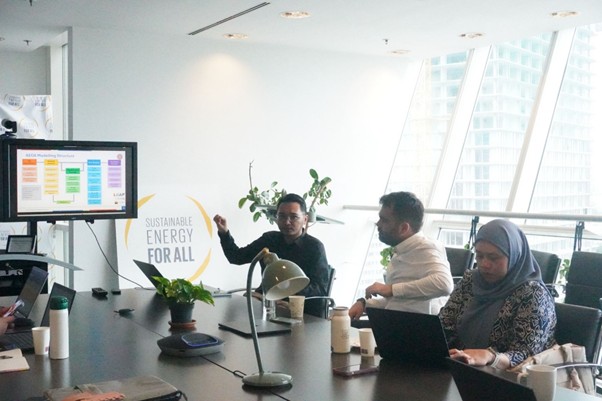Austria, May 2025

Photo 1. ACE and ACCEPT II team with IIASA team.
Energy modelling plays an important role in enhancing ASEAN’s capacity and readiness to transition into a carbon neutral future, as it provides the region with data-driven insights and scenarios that will further guide policy, investment, and technological choices.
Hence, ACCEPT II’s modelling team, represented by Muhammad Rizki Kresnawan, Senior Research Analyst of ACCEPT II, Muhammad Ilham Rizaldi, Research Analyst of ACCEPT II, and Dr Ambiyah Abdullah, Senior Research Analyst of Energy Modelling and Policy Planning (MPP) Department at ACE, had the pleasant opportunity to participate in a one-month technical mission to Austria in May 2025 to further develop their energy modelling skills and knowledge. This initiative is a part of the ASEAN Centre for Energy (ACE)’s COMMITTED Project that focuses on advancing national energy system modelling capacity. Following this engagement, the team also participated in a technical workshop organised by the Sustainable Energy for ALL (SEforALL). The overall objectives of this trip were to enhance modelling skills, contribute to global modelling dialogue, and strengthen ASEAN’s modelling frameworks through collaboration with both IIASA and SEforALL.

Photo 2. Group photo with participants of the MESSAGEixcommunity meeting.
On 5-27 May, the team participated in a modelling research exchange to deepen their understanding of energy systems modelling using IIASA’s integrated assessment framework (MESSAGEix). MESSAGEix is a modelling framework for medium to long-term energy systems planning, energy policy analysis, and scenario development. It provides a flexible framework for the comprehensive assessment of major energy challenges, often applied for developing energy scenarios and identification of socioeconomic and technological response strategies to these challenges. This framework has been used for the Intergovernmental Panel on Climate Change (IPCC) and global climate-energy scenario reports to inform national and regional applications in ASEAN.
During the exchange, they learned about model construction principles, calibration, and data structuring and build a national electricity system model prototype of Indonesia. The insights gained helped strengthen their skills in long-term planning model for relevant net-zero strategies, which they can implement for modelling net zero strategies for regional or national context. They also had opportunities to network and building working relationships with other IIASA researchers for potential collaborations.

Photo 3. Muhammad Ilham Rizaldi, Research Analyst of ACCEPT II, delivering a presentation on cost-effective technology roadmap for Indonesia.
The modelling exchange was followed by a MESSAGEix Community Meeting, where Ilham had the opportunity to present Indonesia’s MESSAGEix prototype modelling alongside Dr. Ambiyah. Ilham highlighted the ACCEPT team’s learning in constructing a prototype model and emphasized how this tool can enhance energy modelling efforts across the region. The session was attended by global researchers from various countries, including Pakistan, Turkey, Canada, Ethiopia, and more. ACCEPT team also participated in other sessions, such as discussion on scenario development tools, equity and climate justice modelling (Decent Living Energy), and integration of land use (MESSAGEix-GLOBIOM), demand-side innovations, and machine learning. These series of sessions helped deepen ACCEPT II’s technical understanding and expand the project’s network with the global MESSAGEix community.

Photo 4. Photo 4. MuhammadRizki Kresnawan, Senior Research Analyst of ACCEPT II, presenting on the 8th ASEAN Energy Outlook (AEO8) energy modelling (left) during the technical workshop organised by SEforALL.
Aside from the research exchange, the team also participated in technical workshop organised by SEforALL on 28-30 May. The session focused on knowledge exchange between the AEO8 and SEforALL’s Energy Model (SEM). Rizki presented the AEO8’s scenario and modelling structure. Discussions delved into key areas such as demand-side modelling—exploring CGE, econometric, and bottom-up activity-based approaches across sectors including industry, transport, buildings, and agriculture. On supply-side modelling, participants explored VRE integration, energy storage, hydrogen technologies, and cross-border interconnections. The session also explored geospatial energy access tools like OnSSET for electrification access and OnStove for clean cooking. The workshop successfully laid the groundwork for future collaboration in regional energy transition planning and knowledge exchange.
Throughout this month-long initiative, the outcomes and insights gained by the team will strengthen the project’s modelling capacity for national energy system models and improvement for the AEO. By learning from experts and other modellers, the team gained exposure to emerging modelling methodologies and global trends in integrated assessment modelling. Their participation reinforced ACCEPT II’s role as a bridge between ASEAN’s energy planning priorities and international modelling expertise.
Moving forward, the team plans to integrate key learnings into future ACCEPT II and ACE flagship products. Efforts to strengthen partnerships will also be continued, with ongoing collaboration with IIASA and SEforALL, ensuring technical support and knowledge exchange remain central to the region’s energy transition planning. Through these efforts, ACCEPT II reaffirms its commitment to support ASEAN’s just and sustainable energy transition using robust, collaborative modelling approaches.
**
(AZD)
Join our ASEAN Researchers Network on Climate Change (ARNECC) by registering yourself here. Become a part of our collaborative efforts to address pressing climate challenges and shape a sustainable future.
Detailed information on ACCEPT II can be found at https://accept.aseanenergy.org/
Follow our social media to stay updated on ASEAN’s energy-climate nexus and ACCEPT activities.